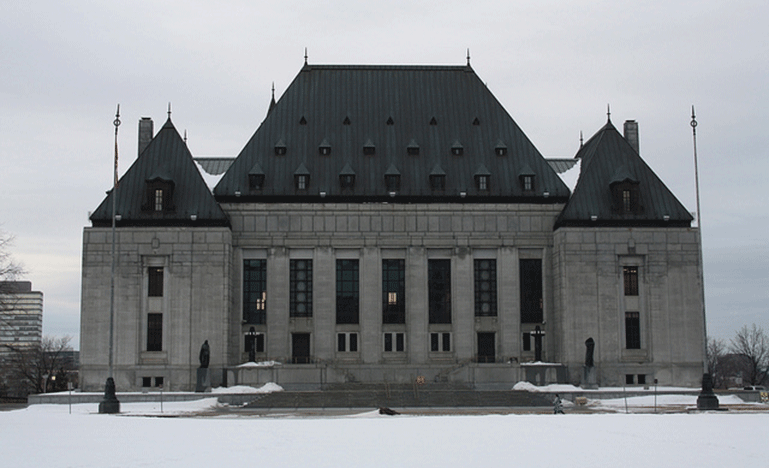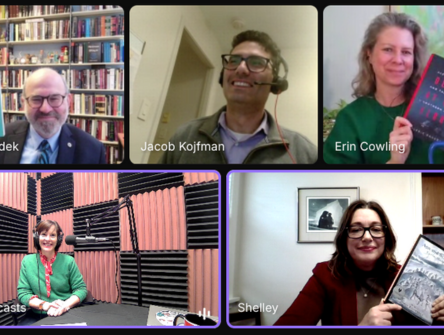Advancing the costs of litigation
The Beaver Lake appeal before the SCC will have major implications for Indigenous litigants making treaty claims against governments with deep pockets.

Seventeen years back, the Supreme Court of Canada attempted to strike a very fine balance on a question about First Nations’ access to the courts. Like most such attempts, it didn’t entirely settle things.
The SCC’s ruling in British Columbia v. Okanagan Indian Band was meant to set out a clear test for awarding advance costs to First Nations plaintiffs in cases where they can no longer keep up with the expense of suing a Crown government. That test for issuing such advance costs orders — so-called “Okanagan orders” — is coming back before the high court.
Last month, the SCC granted leave to Beaver Lake Cree Nation to appeal the Alberta Court of Appeal’s ruling that overturned a lower court’s decision to award it partial advance costs as the First Nation pursues a sweeping treaty infringement claim against the federal and provincial governments. At issue is how the courts decide whether a plaintiff can truly afford to pursue a claim when settling the claim is the public’s interest — and how judges should exercise their discretion in making advance cost orders.
“Discretion” is the key word here. The SCC set out a three-part test for deciding whether a First Nation qualifies for advance costs: it must be “genuinely” unable to pay for the litigation, the claim must have prima facie merit, and the case must raise issues that “transcend the individual interests of the particular litigant, are of public importance, and have not been resolved in previous cases.”
Even if a judge acknowledges all three conditions were met — as the Queen’s Bench ruling that awarded costs pointed out — the decision to issue an Okanagan order remains “in the discretion of the court.”
Beaver Lake’s claim clearly met the second and third conditions of the test. But when it came to deciding whether the First Nation was impecunious enough to qualify for an Okanagan order, the Alberta Court of Appeal judge concluded that the Queen’s Bench ruling got it wrong — that Beaver Lake had the resources to pursue the case but was making a choice to direct those funds to other priorities.
“Merely having legitimate and reasonable ‘pressing infrastructural and social needs’ is not sufficient,” said the Court of Appeal ruling. “That low a test would be inconsistent with the direction in Okanagan Indian Band that advance funding orders are to be exceptional, not routine.”
Karey Brooks of JFK Law in Vancouver is representing Beaver Lake. She said it’s a mistake to assume a First Nation government struggling with poverty and housing issues has the same range of options enjoyed by other private litigants or Crown governments.
“Okanagan orders do work. They’ve allowed this country to develop a body of law in this area,” she said. “These cases are expensive because the court requires a full record to decide these often novel legal issues.
“First Nations have constitutionally protected rights, but if they can’t afford to enforce those rights in court, it’s the government that’s going to dictate how those rights work and how far they go.”
A First Nation in a fiscal bind does have alternatives to seeking an Okanagan order, but they’re not all that flexible. They can try to secure loans, said Ben Jetten of Blakes in Toronto — but without a clear idea of the kind of settlement they can expect, that can be a hard sell.
“We’ve seen companies emerge that will fund First Nations claims. They’ll insure a loan in return for a piece of the settlement,” he said. “In those cases, the First Nation has to agree to give up a fair chunk of whatever they get.
“The difficulty First Nations sometimes encounter is that they can’t get outside parties interested in underwriting their claim because they don’t have a clear idea of what they might get, because there’s an unascertained monetary value attached to it.”
They also can raise funds privately. Beaver Lake received $1.3 million for its legal fees from a non-profit, but that organization now says donor fatigue is dragging down its fundraising efforts.
“There has to be a better way,” said Senwung Luk of OKT Law. “Every year, the federal government spends more than $110 million on litigation against First Nations. That’s about $175,000 for each First Nation, and it doesn’t include what provinces and private industry spend.
“It’s axiomatic that Crown governments have a great deal of freedom to pursue court cases. There is no equality of arms.”
Luk said the Supreme Court offered up the test for Okanagan orders as a “stopgap” to compensate for that inequality of arms. But such orders are intended only for “exceptional” circumstances, which means they probably won’t apply to every First Nation that needs help. “The decision in Okanagan Indian Band,” said the Court of Appeal ruling, “was not intended to result in advance costs orders routinely being made in public interest litigation.”
Luk proposes some long-term solutions. One would be to adopt New Zealand’s tribunal model for interpreting Crown-Indigenous treaties, to take these cases out of the courts altogether.
Another would be to “rebalance” Canada’s fiscal framework to give First Nations more taxation room. “The root of the problem goes back to Crown governments monopolizing government sources of revenue,” he said.
Both of those ideas, whatever their merits, would involve years of negotiation and political compromise. For First Nations that feel they have no option but to go to court now — and are convinced they can’t cover the cost without bleeding essential services — Okanagan orders are still the only real game in town.
“Advance cost awards are the tool we have right now,” said Brooks. “I trust the courts. It’s the system we have.”


